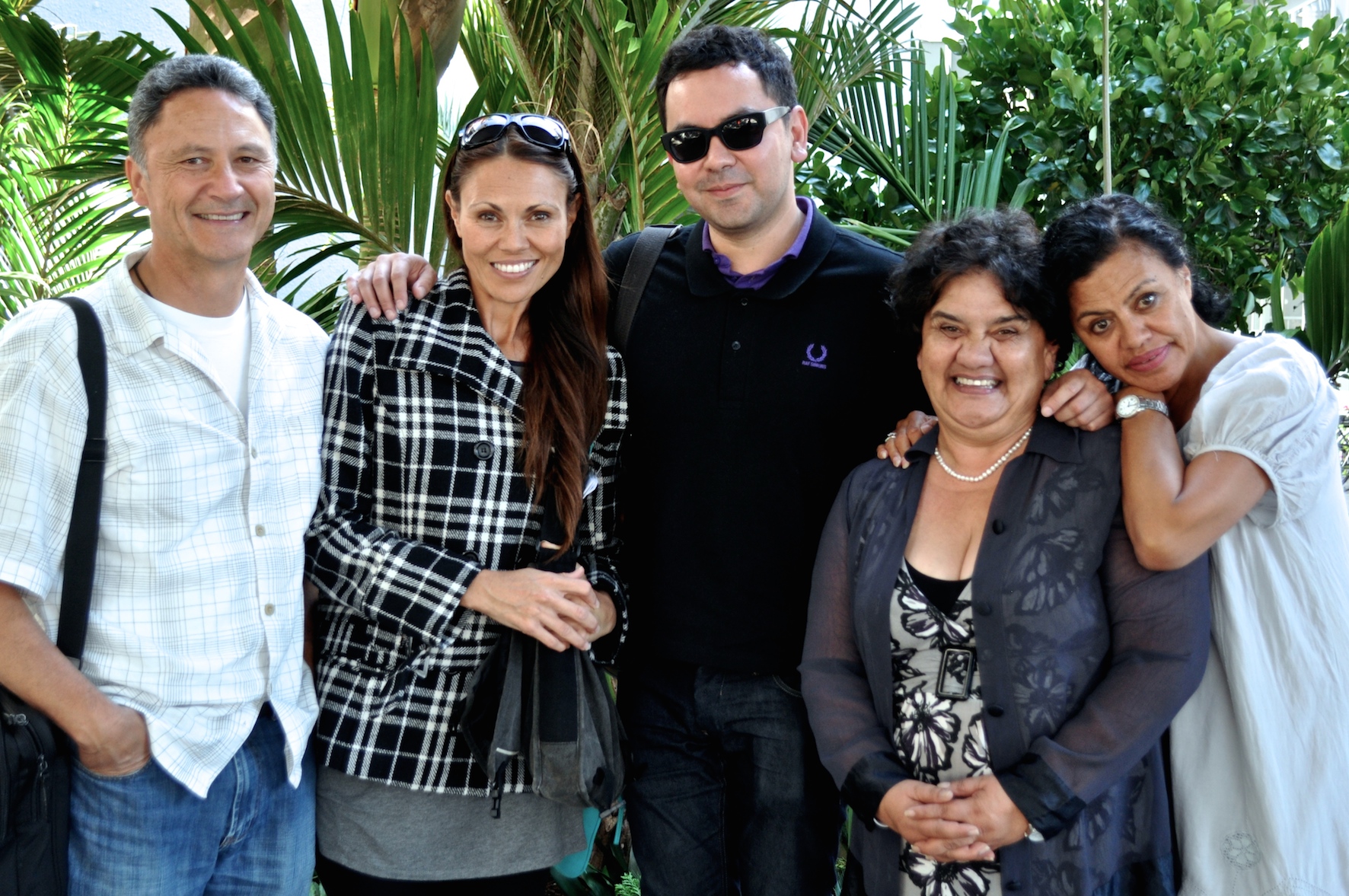
Eva Corlett
AUCKLAND (Te Waha Nui Online / Pacific Media Watch): Film is essential to cultural survival and expression in the 21st century is the message indigenous filmmakers have given to students at AUT University.
Filmmakers, students and members of Ngā Aho Whakaari gathered at AUT last week to discuss and screen indigenous film.
Jason Ryle, director of ImagineNative Indigenous Film Festival in Canada, was invited to speak and show his short films at the first Māoriland Film Festival held in Ōtaki between March 26 and 30.
“[Film] is not just entertainment. It’s not frivolous. It’s fundamental and essential . . . it serves many functions such as healing and reconciliation,” he says.
Dr Ella Henry, lecturer at Te Ara Poutama, the Faculty of Māori and Indigenous Development at AUT and executive board member of Ngā Aho Whakaari, co-ordinated the screening.
There is a need to bring creative communities together, she says.
“Creative industries have an equally important role as the political because it’s where our storytellers are…it’s the stories that make you strong.
“We can never underestimate the long-term negative impacts effects of colonisation, particularly on our menfolk. “[They have to] deal with complete loss of pre-colonial identity and being subsumed into a subordinate role.”
Women healers
Dr Henry says this may be the reason women have become more highly represented in indigenous film and media – something also seen in indigenous filmmaking in Canada, according to Ryle.
Women tend to be the healers and use film for expression and catharsis, says Dr Henry.
“Perhaps women have been able to fly a little more under the radar of colonial impact.” Growth in indigenous media has paralleled growth not just in Canada but internationally, says Ryle.
“Other festivals are actively looking for indigenous films to screen now.” When ImagineNative Film Festival first began 10 years ago, the majority of films about indigenous culture were created by non-indigenous people, he says.
A study conducted around that time showed there were “more representations, and certainly more positive representations of extra-terrestrials on Canadian television than there were of indigenous Canadians”.
ImagineNative was created as a platform for indigenous artists to show their work – not necessarily about indigenous cultures but one that focuses on indigenous perspectives.
The festival now receives around 400 submissions a year and showcases filmmakers in all stages of their career. The writer, director and/or producer must identify as indigenous to enter.
This work is licensed under a Creative Commons Attribution-NonCommercial 3.0 New Zealand Licence.




